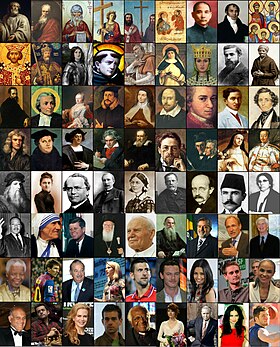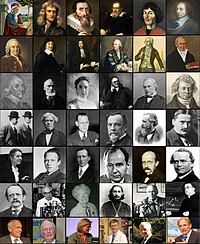
Christians have made many contributions in a broad and diverse range of fields, including the sciences, arts, politics, literatures, sports and business.

Christians have made many contributions in a broad and diverse range of fields, including the sciences, arts, politics, literatures, sports and business.
Many denominations of Christianity exist today. Featured below are members of some of them.
